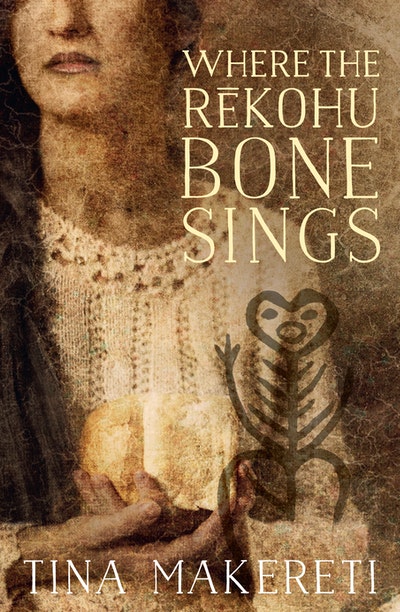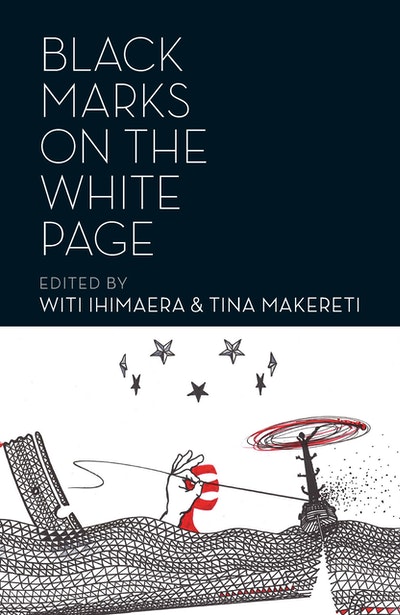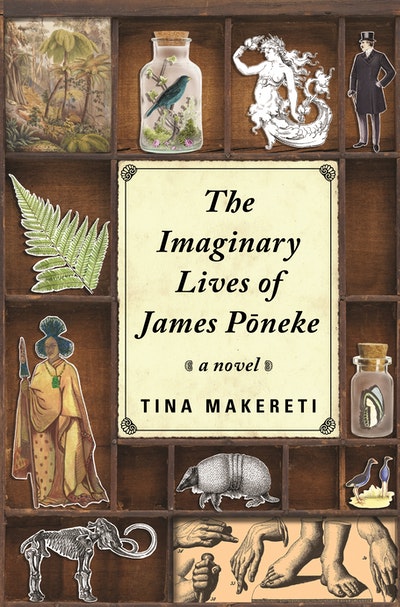- Published: 7 March 2014
- ISBN: 9781775535188
- Imprint: RHNZ Vintage
- Format: Trade Paperback
- Pages: 288
- RRP: $38.00
Where the Rekohu Bone Sings
- Published: 7 March 2014
- ISBN: 9781775535188
- Imprint: RHNZ Vintage
- Format: Trade Paperback
- Pages: 288
- RRP: $38.00
Having won prizes for her short stories, with debut novel Where the Rekohu Bone Sings Tina Makereti makes a bold foray into an area of New Zealand history that has been largely unrepresented and often misunderstood. Treading carefully, she examines the complexity of modern cultural identities that not only are products of loving cross-cultural relationships but also bear the bloody weight of historical acts of violence and injustice. It’s a lot of work for a novel to do, but Where the Rekohu Bone Sings manages the load admirably. . . . Where the Rekohu Bone Sings is a thoughtful tracing of the complexity of being Moriori, Maori and Pakeha and of finding a place of belonging between cultures. That it does all this while also telling a compelling story is impressive indeed.
Louise O'Brien, NZ Listener
I really loved this novel . . . I think it is going to be a really significant New Zealand novel that could well become quite famous.
Carole Beu, https://www.youtube.com/watch?feature=youtu.be&v=s2C7wmz8FnA&app=desktop
I don’t usually write about novels on Poetry Shelf, but I have just finished one that I am so full of, I want to share that fullness. And I am full in a good way. Tina Makereti’s novel, Where the Rekohu Bone Sings (Random House, 2014), is a novel that emerges from diligent research and thought, yet also draws upon the panoramic experience as a mother, daughter, partner, lover. More than anything, the novel shows how fiction can represent the molecular dance of being human—the strengths, the weakness, the biases—in a way that refreshes your view of things . . . Tina's extraordinary book embraces all manner of loves and strengths but as it faces the challenging and complex effects and behaviours of racism (amongst other issues), it shows too the power of story to delve deep. To take risks. To refract and reflect . . . For me, the pleasure of the reading experience is multi-layered. Every now and then you find a book that satisfies on so many levels. It begins with the sentence—the way each is crafted with such finesse it is like the invisible stitching of fiction (at times though sentences are ambidextrous and are there to promote a visible and audible delight in language as well as to steer the narrative). Then there is the structure the holds the work together beautifully (in this case the entwined rope) along with the characters that gain such flesh and blood you become part of their world and it is a wrench to leave them. Finally there is the way a fictional work can strike you so profoundly, it enters and shakes both heart and intellect. Tina’s book has done all of this. Yet the questions raised were the crucial gift for me. How to represent history (fictional or otherwise) in the face of all its clashing and volatile versions? How to live when your identity is ‘braided ropes’? How to move forward when these rope strands all bear the strain of unspeakable episodes (crimes against humanity, racism, intolerance, ignorance)? How to look back in order to move forward? How to forge and reforge personal and cultural identities? How to love and how to grieve? How to forgive? How to remember and how to forget? These are some of the questions that Tina has embedded in her narrative. Not in a didactic or pedantic way but in the bone marrow of her characters. This is what lifts the novel beyond the joy of fiction (and it most definitely provides this) to a renewed engagement with what it means to love and live in the place where you have laid your roots—Aotearoa/New Zealand. Tina has written with such warmth, compassion, daring, empathy, insight and intellectual keenness on issues that matter so very much without ever losing sight of the ability of stories to sustain us, I urge you to read the novel.
Paula Green, Poetry Shelf
There is some excellent writing here. . . . this is a solid and accessible piece of writing, clearly heartfelt by the author and with much vivid representation. A good read.
Nicholas Reid, Sunday Star-Times
An unshrinking book, which faces the issues of Moriori rights and status, the culpability and cultural obligations of Maori as tangata whenua and British as colonists. A generous book also. The author respects her characters but doesn’t ignore their sulks and selfishness. People can exploit, enslave, abandon but they can also commit enriching acts of kindness. And did I mention that it has happy — or at least reconciled and fulfilled — endings plural? Great.
David Hill, Weekend Herald
With its lyrical prose, clever structure and engaging characters, this novel about identity and belonging is also an exploration of the Rekohu massacre that has been neglected and misrepresented. It's also a convincing portrait of 1880s Wellington with all its poverty and racism.
The Breakdown, Capital (NZ), Wellington
You don't have to be Moriori/Maori/Pakeha to appreciate the issues dealt with in this book. they confront us all.
Paul Little, North & South
This remarkable first novel spans generations of Moriori, Maori and Pakeha descendants as they grapple with a legacy of pacifism, violent domination and cross-cultural dilemmas . . . Tina Makereti has produced a New Zealand classic that is both compelling as a novel and historically fascinating as it explores the Chatham Islands/Rekohu story.
Reading Room, Australian Womens Weekly
This beautifully written novel describes the essence of family—what it is and who we are. . . . This is a novel which will benefit all who attempt it. I would particularly recommend it to high school students looking for text on identity.Who we are, what we are and how we are is a result of all who have come before as the next generation takes on their own actions and decisions within themselves. Fascinating, and highly readable.
Elizabeth Morrow, Wairarapa Times Age
It is a rare thing for a novel so steeped in history to be simultaneously relevant to modern-day readers. . . . At the book's core is the yearning to understand and identify with contrasting, conflicting heritage. . . . Her story is a balanced blend of New Zealand history and character-driven fiction, one which highlights questions pondered by New Zealanders today.
Rosie Manins, Otago Daily Times
Co-editor of the wonderful recent collection of Oceanic writing Black Marks on the White Page, Tina Makereti's beautifully plotted and observed 2014 novel Where theRekohu Bone Sings explores the idea ofbelonging and the complexities of identity with Moriori, Maori and Pakeha heritage. Gliding between the Chatham Islands (Rekohu) and London, and from 1835 to contemporary times the narrative deals with the effects after Maori arrived in New Zealand and massacred the Moriori. Mere and her family slave Iraia grow up together in the Queen Charlotte Sound. Despite their differing social status, the two grow close and run away together to Wellington. A parallel story sees twins Lulu and Bigs born with an extremely rare occurrence: Lulu is completely white and Bigs is brown. Under the watchful eye of the spirit figure of the bone of Rekohu, the mythical is fluidly weaved into this stunning story of dislocation, family secrets and engaging with cultural heritage.
Kiran Dass, Weekend Herald
Where the Rekohu Bone Sings (Vintage) is one of the best local novels I have ever read. . . . I found it hauntingly beautiful.
The Grey Warbler, Waiheke Weekender
Nga Kupu Ora – Aotearoa Maori Book Awards
Winner • 2014 • Aotearoa Maori Book Awards, Te Pakimaero Fiction category





